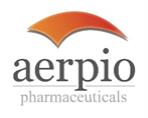Exhibit 99.1

Aerpio Pharmaceuticals Announces Results FromTIME-2b Study ofAKB-9778 in Diabetic Retinopathy
TIME-2b Study Did Not Meet the Primary Endpoint of2-Step Reduction in DRSS Score
Conference Call and Webcast Today, March 18th at 8:30 a.m. EDT
CINCINNATI – Mar. 18, 2019 — (BUSINESS WIRE) Aerpio Pharmaceuticals, Inc. (Nasdaq: ARPO), a biopharmaceutical company focused on developing compounds that activate Tie2 to treat ocular diseases and diabetic complications, today announcedtop-line results from the Company’sTIME-2b study, a Phase 2b clinical trial designed to assess the efficacy and safety of Aerpio’s lead candidate,AKB-9778, for patients with moderate to severenon-proliferative diabetic retinopathy (NPDR).
Administration ofAKB-9778 twice daily did not meet the study’s primary endpoint of the percentage of patients with an improvement of two or more steps in the study eye diabetic retinopathy severity score (DRSS) compared to placebo. The percentage of patients achieving this endpoint forAKB-9779 twice daily (BID) and placebo were 9.6% and 3.8%, respectively (p=0.270). In all qualified eyes (i.e., study eyes and fellow eyes that met the inclusion/exclusion criteria), the percentage of eyes achieving this endpoint was 8.6% and 2.7%, forAKB-9778 BID and placebo, respectively (p=0.158). The rates of progression to sight-threatening complications, including diabetic macular edema (DME) and/or proliferative diabetic retinopathy (PDR), during the48-week treatment period were similar between treatment groups.
AKB-9778 did show encouraging data in a number of prespecified, key secondary endpoints, consistent with the observations in the prior Phase 2a(TIME-2) trial, including changes in Urine Albumin-Creatinine Ratio (UACR), a measure of kidney function, and in intraocular pressure (IOP). The company plans to advance a topical drop formulation ofAKB-9778 into clinical development and expects to initiate a Phase 1b study in the second quarter of 2019 with results anticipated by the end of 2019.
AKB-9778 was found to be safe and well-tolerated in this patient population through 48 weeks of twice-daily dosing. The most common adverse events with higher incidence in theAKB-9778 BID group were dizziness of 10.9% versus 7.0% in the placebo arm, and headache of 10.9% compared to placebo of 3.5%. There was one death in the study, and it was in the placebo group.
“While we are disappointed in the primary endpoint results of this study, we are nevertheless encouraged by the fact that several other promising findings observed in our prior3-month Phase 2a trial have been prospectively confirmed in this1-year trial,” said Stephen Hoffman, M.D.,
